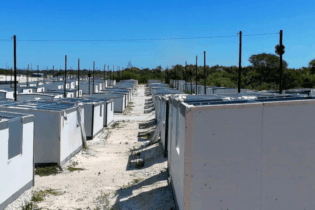Moody’s Investors Service cut South Africa’s government bond rating by one notch to Baa1 from A3 last Thursday, citing worries about the country’s institutions as well as future political stability and room for policy maneuvering.
The main driver of the downgrade “is Moody’s lowered assessment of institutional strength to ‘moderate’ from ‘high,’ an important factor in the rating agency’s judgment of a sovereign’s economic resiliency,” it said in a statement. The rating agency also cited concerns around the negative investment climate – from creaking infrastructure to worries about South Africa’s future political stability. “Government remains committed to taking the necessary measures to lift the growth potential and competitiveness of the South African economy,” the country’s government said in a statement. “The core of South Africa’s policies remains stable and predictable.” Investor sentiment has been soured by a series of wildcat strikes over the past weeks that have debilitated production in the world’s top platinum producer and No. 4 gold producer, and the government has been criticized as ineffective and out of touch. The violent rise of AMCU – an upstart union in the sector – is posing the most serious challenge to the unwritten pact at the heart of the post-apartheid settlement: that unions aligned with the ruling African National Congress (ANC) deliver modestly higher wages for workers, while ensuring labor stability for big business. “As the strikes in South Africa spread both within the mining industry and to elsewhere in the economy we think the prospect for further downgrades from other agencies remains very high,” said Peter Attard Montalto, an emerging markets economist at Nomura. “We think that the mining issues raise investors’ awareness of the country’s longstanding problems,” Kristin Lindow, Moody’s lead analyst for South Africa, told Reuters. The ruling ANC has been preoccupied with an electoral conference at the end of the year, when President Jacob Zuma hopes to win another term as the leader of the party. The ANC dominates politics despite criticism for not doing enough to end chronic poverty and a broken education system that undermines the country’s competitiveness.Moody’s cited uncertainty around the conference in its decision to keep the outlook negative.
In addition, South Africa – part of the so-called BRICS group of major emerging markets that includes Brazil, Russia, India and China – has “shrinking headroom for counter-cyclical policy actions,” the statement added. South African policymakers have acknowledged limited policy options. Reserve Bank Governor Gill Marcus said earlier this year the country is feeling the effects of the global downturn but is constrained in policy options. Markets most likely expected the downgrade, Absa Capital analysts wrote. “To the extent that this is the case, we expect that the market’s response could be limited and do not believe that this spells the beginning of a sustained sell-off,” wrote Mamokete Lijane, Jeff Gable and Andreas Kolbe. South Africa’s economic growth is likely to moderate in 2012 due to weak external conditions and global uncertainty, the International Monetary Fund said last month, adding that monetary policy should remain accommodative, given limited fiscal space. Standard & Poor’s and Fitch both rate South Africa BBB-plus, with a negative outlook. Source: Reuters





